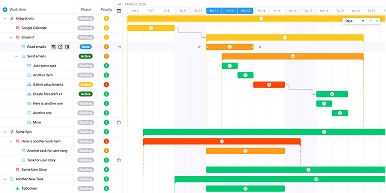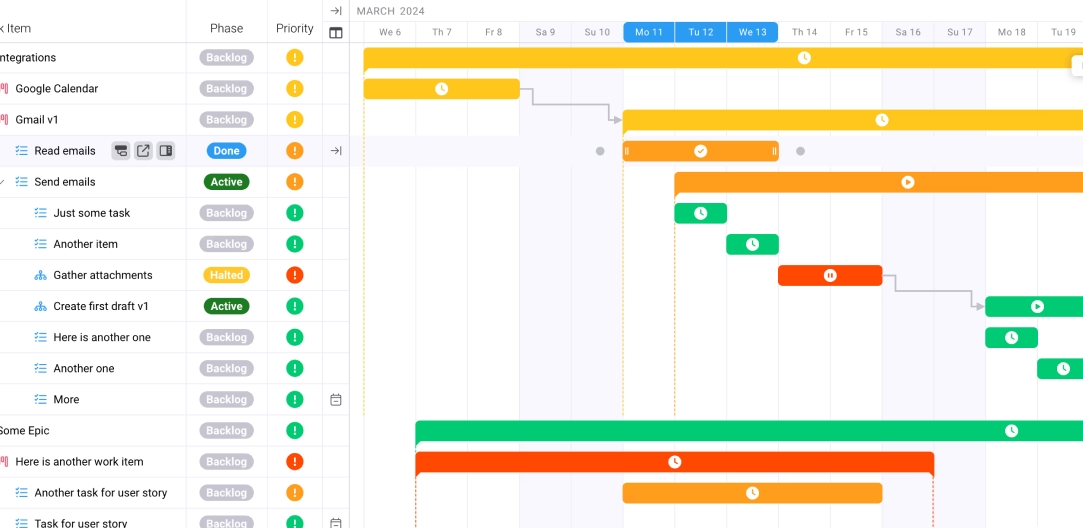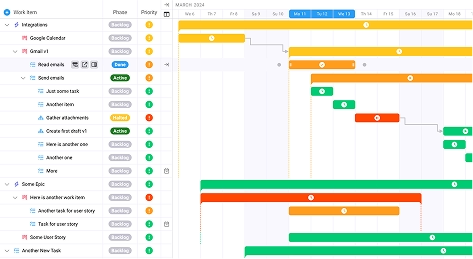
Top 5 Project Management Tools with Time Tracking and Invoicing
Key takeaways:
In an era where 88% of organizations use project management software for digital efficiency, choosing the right project management tools with time tracking and invoicing has become mission-critical for business success. Yet surprisingly, 67% of projects fail due to poor project management, often because teams lack integrated solutions that combine project oversight with accurate time tracking and streamlined billing capabilities.
The landscape of project management tools with time tracking and invoicing is evolving rapidly, driven by the shift toward remote work and the growing demand for comprehensive business solutions. This guide reveals the top 5 project management tools with time tracking and invoicing that are transforming how professional services firms, agencies, and consulting companies manage their operations and maximize profitability.
The Current Challenge - What's Broken in Traditional Project Management
Traditional project management approaches are failing modern businesses in three critical areas: fragmented workflows, inadequate financial tracking, and poor client visibility. The statistics paint a sobering picture of why businesses desperately need integrated solutions.
The financial impact of poor project management is staggering. Organizations waste billions annually due to ineffective project oversight, with automation reducing costs by 10-50% by reducing labor costs and manual processing when properly implemented. Yet many businesses continue struggling with disconnected systems that create more problems than they solve.
Time tracking represents another major pain point. The time tracking software market is projected to reach $29.88 billion by 2033, growing at 17.26% CAGR, reflecting the urgent need for better solutions. Companies using manual time tracking methods lose valuable billable hours, struggle with payroll accuracy, and lack the data needed for informed decision-making.
Invoicing complexity compounds these challenges. The billing and invoicing software market is expected to grow from $5.43 billion in 2025 to $13.94 billion by 2033, driven by businesses seeking to automate financial processes and improve cash flow management. Companies that fail to modernize their billing workflows face delayed payments, client disputes, and administrative overhead that erodes profitability.
The remote work revolution has intensified these challenges. With hybrid job postings increased from 9% in Q1 2023 to 24% of new jobs in Q1 2025, businesses need tools that support distributed teams while maintaining project visibility and financial accountability. Traditional approaches simply cannot scale to meet these demands.
The Strategic Framework - Integrated Project Management Excellence
The most successful organizations have moved beyond piecemeal solutions toward integrated platforms that combine project management, time tracking, and billing in unified ecosystems. This strategic approach eliminates data silos, reduces administrative overhead, and provides the real-time insights needed for optimal decision-making.
Modern project management tools with time tracking and invoicing must address five core requirements: comprehensive project oversight, accurate time capture, automated billing workflows, client collaboration features, and robust reporting capabilities. The most effective solutions integrate these functions seamlessly, creating workflows that support both project delivery excellence and financial optimization.
The key to selecting the right platform lies in understanding how these tools support your specific business model. Professional services firms need robust resource planning capabilities alongside billing features, while creative agencies require collaborative workflows and client portal functionality. The best solutions adapt to your unique requirements rather than forcing you to change your processes.
Integration capabilities represent another critical factor. Leading platforms connect with existing business systems, from accounting software like QuickBooks to communication tools and CRM systems. This connectivity ensures data flows smoothly across your technology stack, eliminating duplicate data entry and reducing the risk of errors.
Top 5 Project Management Tools with Time Tracking and Invoicing
1. Ravetree - The All-in-One Professional Services Platform
Ravetree leads this category by offering the most comprehensive integration of project management, time tracking, and invoicing capabilities specifically designed for professional services firms. Unlike generic project management tools, Ravetree addresses the unique needs of agencies, consulting firms, and other client-service businesses with purpose-built features.
The platform excels in several key areas. Project management capabilities include advanced Gantt charts, resource planning tools, and customizable workflows that support both traditional and Agile methodologies. Teams can create project templates, manage dependencies, and track progress with real-time dashboards that provide instant visibility into project health.
Time tracking functionality goes beyond basic timers. Users can log time directly against projects and tasks, with options for automatic timers, manual entry, and mobile time capture. The system supports both billable and non-billable time categorization, ensuring accurate project costing and profitability analysis.
Invoicing and billing represent where Ravetree truly shines. The platform generates professional invoices directly from approved time logs and expenses, with customizable templates and automated delivery options. QuickBooks integration ensures seamless financial workflow, while retainer management tools help professional services firms optimize cash flow.
What sets Ravetree apart is its focus on professional services workflows. Features like client portals give clients real-time project visibility, while robust reporting tools help managers analyze profitability, resource utilization, and project performance. The platform's pricing model, starting at $29 per user monthly for annual plans, provides excellent value for growing teams.
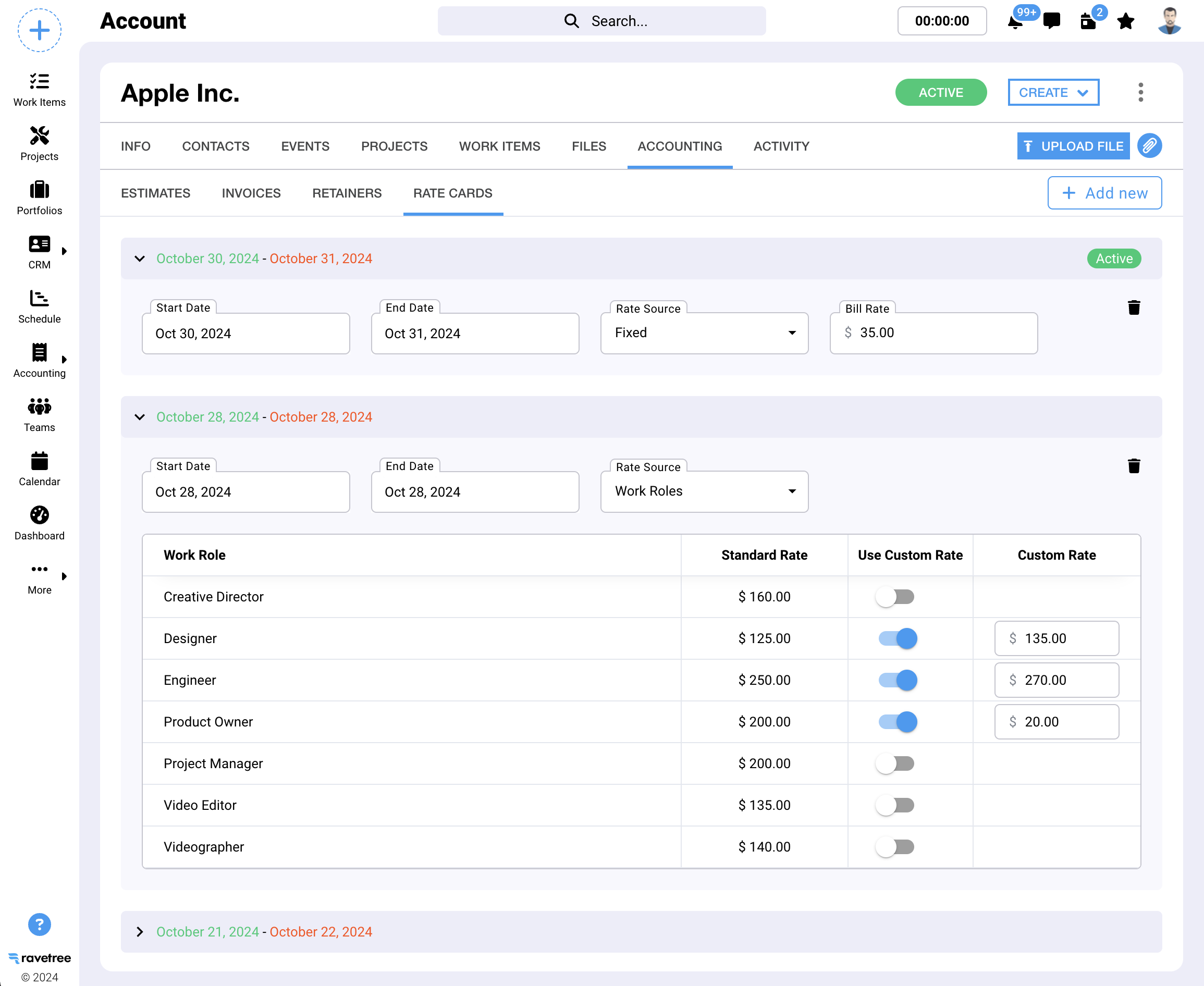
2. Paymo - Streamlined Project Management for Small Teams
Paymo positions itself as an intuitive solution for small to medium-sized teams seeking straightforward project management with integrated time tracking and invoicing. The platform emphasizes simplicity without sacrificing functionality, making it accessible for teams new to integrated project management systems.
Project management features include task boards, Gantt charts, and project templates that help teams organize work efficiently. The visual project interface makes it easy to understand project status at a glance, while collaboration tools ensure team members stay aligned on objectives and deadlines.
Time tracking capabilities include desktop and mobile apps with automatic time capture, manual time entry, and detailed reporting. The system accurately tracks billable hours and provides insights into time allocation across projects and team members.
Invoicing functionality allows teams to create professional invoices from tracked time and expenses. The platform supports multiple currencies, customizable invoice templates, and automated payment reminders that help improve cash flow management.
Paymo's strength lies in its user-friendly interface and affordable pricing structure, making it accessible for smaller teams that need comprehensive functionality without complexity. The platform offers excellent value for teams seeking to upgrade from manual processes or basic tools.
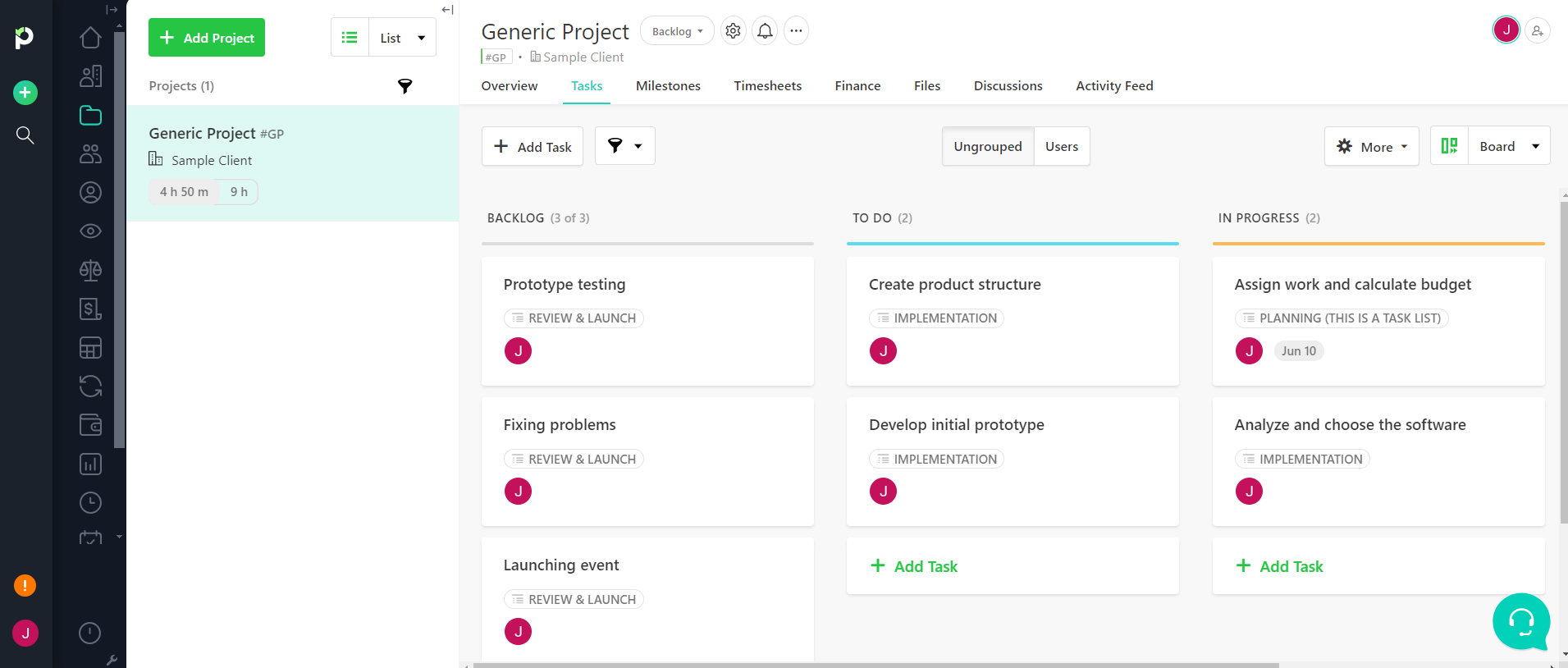
3. Harvest - Time Tracking Excellence with Strong Financial Integration
Harvest has built its reputation as a leading time tracking solution that seamlessly integrates with project management and invoicing workflows. The platform focuses on simplicity and accuracy, making it easy for teams to capture billable time without disrupting their natural work patterns.
The time tracking experience represents Harvest's core strength. The platform offers multiple ways to log time, including timers, manual entry, and mobile apps. Integration with popular project management tools allows teams to track time against specific projects and tasks while maintaining their preferred project management workflows.
Invoicing capabilities transform tracked time into professional invoices with minimal manual intervention. The platform supports customizable invoice templates, automated billing schedules, and payment processing through multiple gateways. Expense tracking and reimbursement features round out the financial management capabilities.
Reporting and analytics provide valuable insights into team productivity, project profitability, and resource allocation. Visual reports help managers identify trends, optimize resource allocation, and make data-driven decisions about project pricing and team capacity.
Harvest's focus on time tracking accuracy and financial integration makes it particularly valuable for professional services firms that bill clients based on time and materials. The platform's clean interface and robust API enable seamless integration with existing business systems.
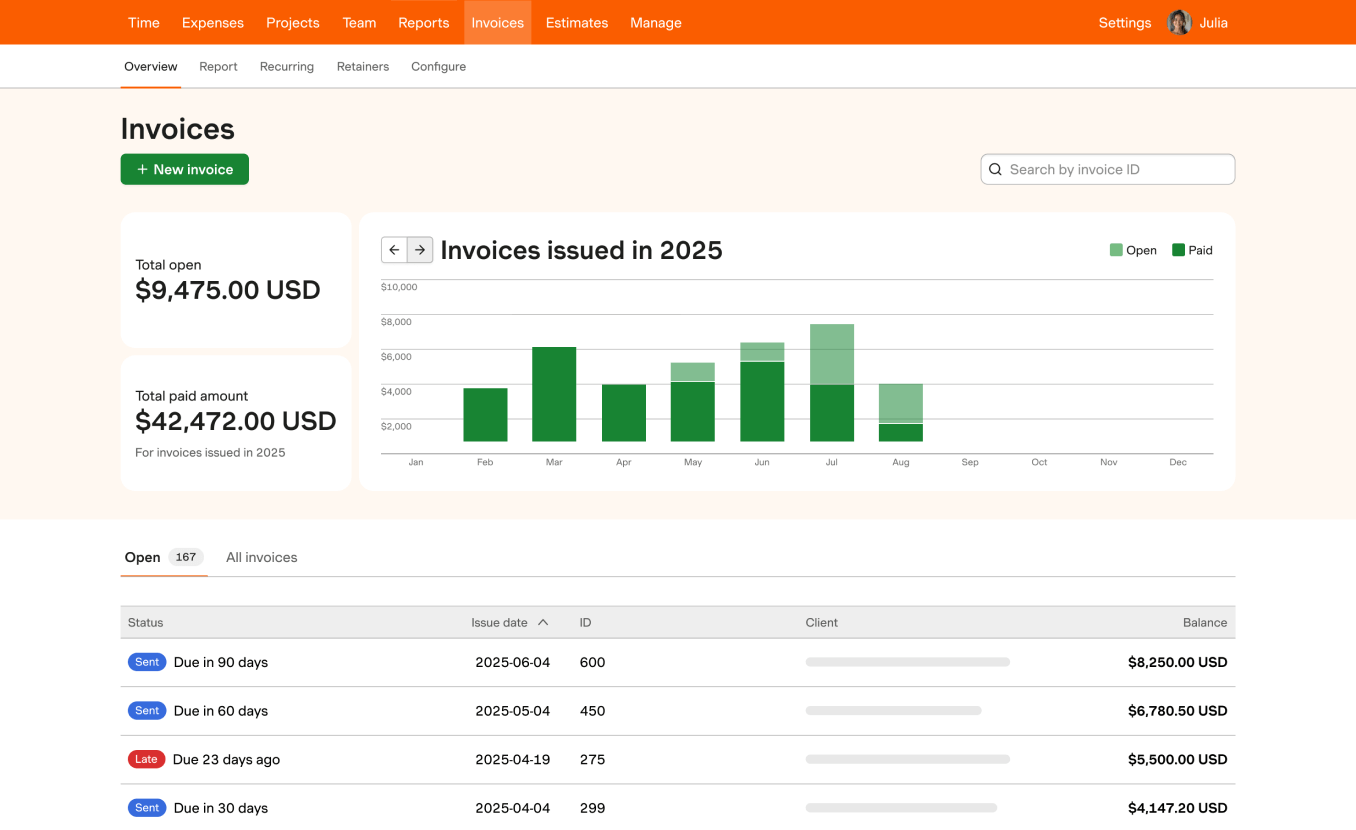
4. Clockify - Comprehensive Free Solution with Scalable Premium Features
Clockify disrupts the market by offering a fully-featured time tracking and project management solution with a robust free tier. This approach makes professional-grade time tracking accessible to teams of all sizes while providing premium features for organizations with advanced needs.
Project management capabilities include project organization, task management, and team collaboration features. The platform supports multiple project views, including timesheets, calendars, and dashboard reports that provide comprehensive project oversight.
Time tracking functionality covers all essential requirements: timers, manual time entry, offline tracking, and mobile apps. The platform excels at capturing detailed time data across projects, clients, and team members, with powerful filtering and reporting capabilities.
Invoicing features, available in premium plans, allow teams to generate professional invoices from tracked time and expenses. The system supports multiple billing rates, customizable templates, and automated workflows that streamline the billing process.
Clockify's free tier provides substantial value for small teams, while premium features unlock advanced functionality needed by larger organizations. This freemium model allows teams to test the platform thoroughly before committing to paid plans.
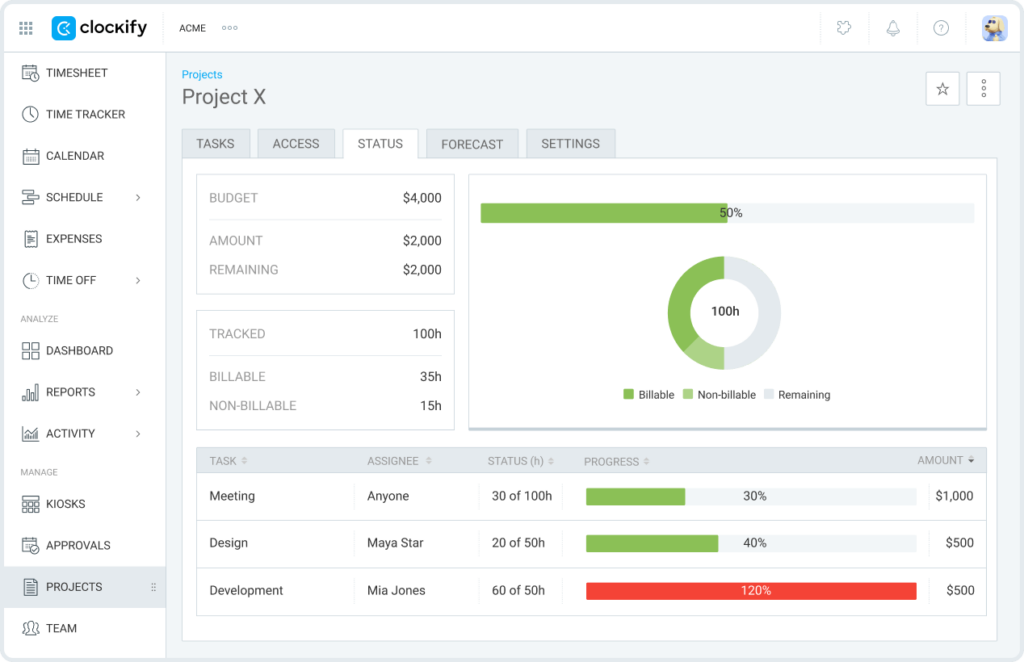
5. Toggl - Advanced Analytics and Team Performance Optimization
Toggl (now Toggl Track) has evolved from a simple time tracking tool into a comprehensive workspace productivity solution. The platform emphasizes advanced analytics and team performance optimization, providing insights that help managers improve project outcomes and team efficiency.
Project management features include project organization, task management, and team collaboration tools. The platform's strength lies in its analytical capabilities, providing detailed insights into how teams spend time and identifying opportunities for productivity improvements.
Time tracking represents Toggl's foundation, with sophisticated features including automatic suggestions, project detection, and detailed categorization options. The platform's AI-powered features help users capture time more accurately while reducing manual data entry requirements.
Invoicing and billing capabilities allow teams to convert tracked time into professional invoices with customizable templates and automated workflows. Integration with accounting systems ensures smooth financial processes and accurate record-keeping.
Toggl's advanced analytics and reporting capabilities set it apart from simpler solutions. The platform provides detailed insights into team productivity, project profitability, and resource allocation, helping managers optimize performance and make data-driven decisions about capacity and pricing.
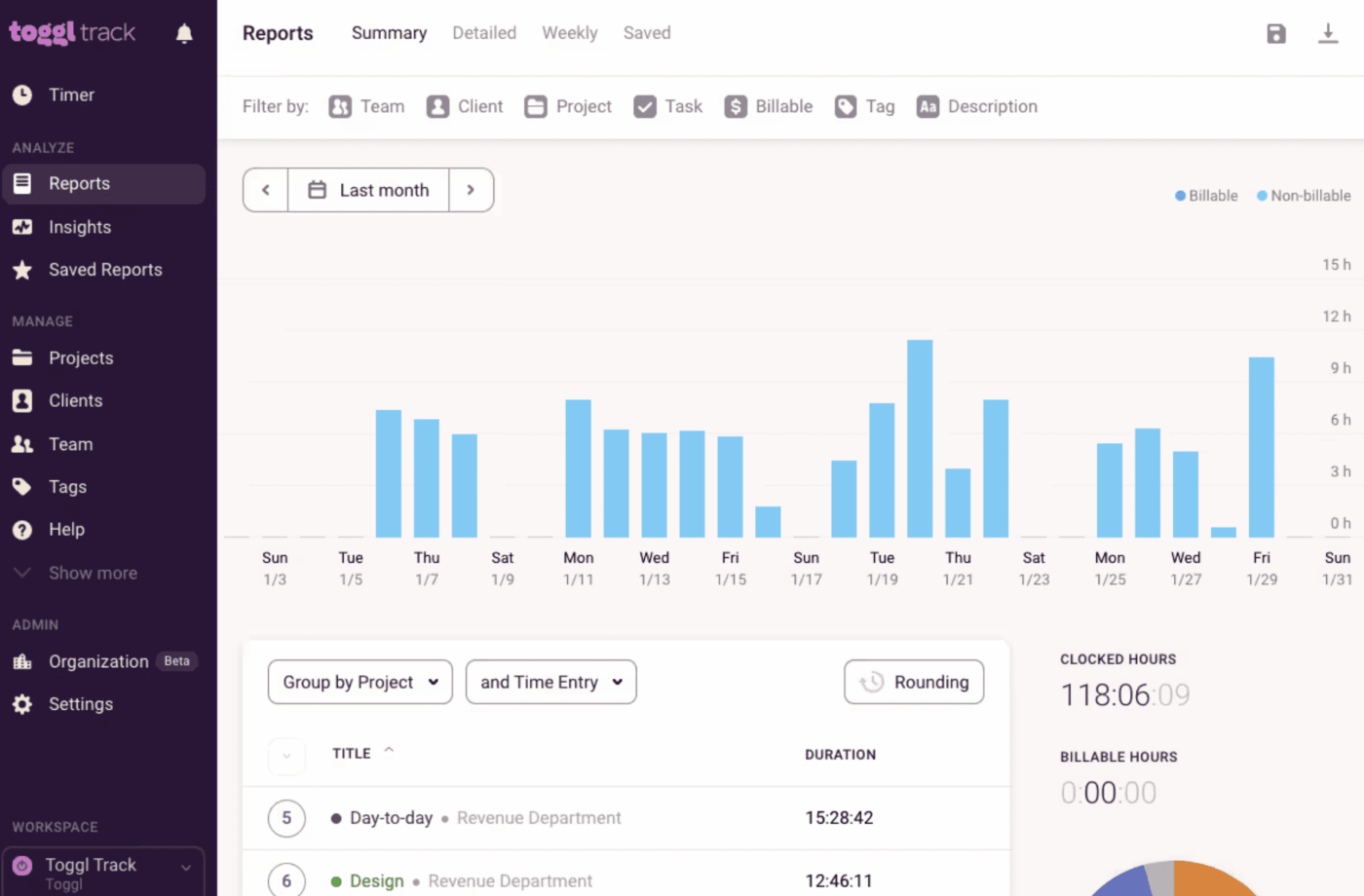
Implementation Tactics - Maximizing Your Investment
Successfully implementing project management tools with time tracking and invoicing requires a strategic approach that addresses both technical and cultural factors. The business productivity software market stood at $98.25 billion in 2025 and projected to reach $183.23 billion by 2030, reflecting the growing recognition that proper implementation drives significant business value.
Start with pilot programs that allow teams to test functionality without disrupting critical workflows. Choose one project or team to serve as the testing ground, gathering feedback and refining processes before rolling out organization-wide. This approach minimizes risk while building internal expertise and buy-in.
Training and onboarding represent critical success factors. 83% of remote workers report being as productive or more productive with current work model when they have the right tools and training. Invest in comprehensive training programs that cover not just how to use the software, but how to optimize workflows and extract maximum value from the platform's capabilities.
Integration planning ensures seamless data flow between your new platform and existing business systems. Map out all current tools and processes, identifying integration points and data migration requirements. The most successful implementations prioritize integration with accounting systems, communication tools, and existing project management workflows.
Change management strategies help teams adapt to new workflows and embrace the benefits of integrated systems. Communicate the benefits clearly, address concerns proactively, and celebrate early wins to build momentum. Regular check-ins and feedback sessions ensure the implementation stays on track and addresses emerging needs.
Performance measurement establishes baseline metrics and tracks improvement over time. Monitor key indicators like project completion rates, billing accuracy, time-to-payment, and team productivity. Use this data to refine processes and demonstrate the value of your investment to stakeholders.
Measuring Success - KPIs and Metrics That Matter
Effective measurement of project management tools with time tracking and invoicing success requires a balanced approach that considers operational efficiency, financial performance, and team satisfaction. Given that decent ROI for IT projects ranges from 5-10% according to industry standards, establishing clear metrics helps justify the investment and guide optimization efforts.
Financial metrics provide the most direct measure of platform value. Track improvements in billing accuracy, reduction in time-to-payment, and increases in billable hour capture. Many organizations see immediate improvements in cash flow when they implement automated invoicing workflows that eliminate delays and errors.
Operational efficiency metrics reveal how the platform impacts day-to-day workflows. Monitor project completion rates, team utilization percentages, and time allocation across different activities. Look for trends that indicate improved resource allocation and reduced administrative overhead.
Client satisfaction represents another crucial success indicator. Measure improvements in project delivery timelines, communication frequency, and client portal usage. Many organizations find that integrated platforms improve client relationships by providing better visibility and more professional billing processes.
Team productivity metrics help assess the human impact of platform implementation. Track time savings, error reduction, and employee satisfaction scores. The insights about managing billable projects effectively often reveal opportunities for process improvements that benefit both team morale and business results.
Return on investment calculations should consider both direct savings and indirect benefits. Include factors like reduced administrative time, improved billing accuracy, better resource utilization, and enhanced client retention. Many organizations find that the indirect benefits often exceed the direct cost savings.
Future Considerations - Emerging Trends and Next Steps
The future of project management tools with time tracking and invoicing will be shaped by artificial intelligence, advanced analytics, and deeper integration capabilities. Organizations that position themselves to leverage these emerging trends will gain significant competitive advantages in the evolving business landscape.
Artificial intelligence will transform how teams interact with project management platforms. Predictive analytics will help managers identify potential project risks before they materialize, while automated suggestions will optimize resource allocation and project timelines. AI-powered insights will enable more accurate project estimation and improved profitability forecasting.
Integration ecosystems will continue expanding, connecting project management platforms with an ever-growing array of business tools. Future platforms will seamlessly integrate with communication systems, marketing automation tools, customer relationship management platforms, and advanced analytics solutions, creating comprehensive business management ecosystems.
Mobile and remote capabilities will become even more sophisticated as distributed work becomes the norm. Future platforms will offer enhanced mobile functionality, improved offline capabilities, and better support for global teams working across multiple time zones and jurisdictions.
Advanced reporting and analytics will provide deeper insights into business performance and opportunities for optimization. Real-time dashboards will offer instant visibility into project health, team productivity, and financial performance, while predictive analytics will help organizations make proactive decisions about capacity, pricing, and resource allocation.
The most successful organizations will view project management tools with time tracking and invoicing not as standalone solutions, but as foundational elements of comprehensive digital transformation strategies. Those who invest in the right platforms today will be positioned to capitalize on these emerging trends and maintain competitive advantages in an increasingly complex business environment.
Conclusion
Selecting the right project management tools with time tracking and invoicing represents a strategic investment that impacts every aspect of your business operations. From project delivery excellence to financial optimization, the platforms featured in this guide—Ravetree, Paymo, Harvest, Clockify, and Toggl—offer comprehensive solutions that address the complex needs of modern professional services organizations.
As the QuickBooks integration capabilities become increasingly important for financial workflow automation, choosing a platform that supports seamless integration with your existing business systems will determine your success in implementing these transformative tools.
The time to act is now. Whether you're struggling with manual time tracking, disconnected billing processes, or poor project visibility, the right project management tools with time tracking and invoicing can transform your operations and unlock new levels of profitability and efficiency.
Frequently Asked Questions
What features should I prioritize when selecting project management tools with time tracking and invoicing?
Focus on platforms that offer seamless integration between project tasks, time capture, and billing workflows. Essential features include automated time logging, customizable invoice templates, real-time project reporting, and integration with your existing accounting systems.
How do integrated project management platforms improve profitability compared to standalone tools?
Integrated platforms eliminate data silos and reduce administrative overhead while providing comprehensive insights into project profitability. They enable accurate time capture, streamlined billing processes, and better resource allocation decisions that directly impact your bottom line.
What's the typical ROI timeframe for implementing project management software with time tracking and invoicing?
Most organizations see immediate improvements in billing accuracy and time capture, with significant ROI typically realized within 3-6 months. Long-term benefits including improved project delivery and enhanced client relationships continue accumulating over time.
How important is mobile access for time tracking and project management?
Mobile capabilities are essential for modern teams, especially those working remotely or in the field. Look for platforms that offer full-featured mobile apps with offline capabilities and automatic synchronization when connectivity returns.
Should small businesses invest in comprehensive project management platforms or start with simpler tools?
While simpler tools may seem appealing initially, small businesses often benefit more from comprehensive platforms that can scale with their growth. The integrated approach eliminates the need for multiple tool subscriptions and provides a foundation for long-term business development.
How do I ensure team adoption when implementing new project management tools?
Success depends on comprehensive training, clear communication of benefits, and gradual rollout strategies. Choose platforms with intuitive interfaces and strong customer support, and involve key team members in the selection process to build buy-in.
What security considerations should I evaluate when selecting cloud-based project management tools?
Prioritize platforms that offer enterprise-grade security features including data encryption, regular backups, compliance certifications, and granular user permissions. Ensure the vendor provides transparent security policies and incident response procedures.
How do project management tools with time tracking and invoicing support client relationships?
Modern platforms enhance client relationships through improved communication, transparent project reporting, accurate billing, and professional presentation. Client portal features allow customers to track project progress and submit requests directly through the system.
What integration capabilities should I look for in project management platforms?
Essential integrations include accounting software, email systems, calendar applications, and communication tools. Look for platforms that offer robust APIs and pre-built integrations with the tools your team already uses daily.
How do I calculate the ROI of implementing project management software with time tracking and invoicing?
Calculate ROI by measuring improvements in billable hour capture, reductions in administrative time, decreased billing errors, and improved project delivery speed. Include both direct cost savings and indirect benefits like enhanced client satisfaction and team productivity.


